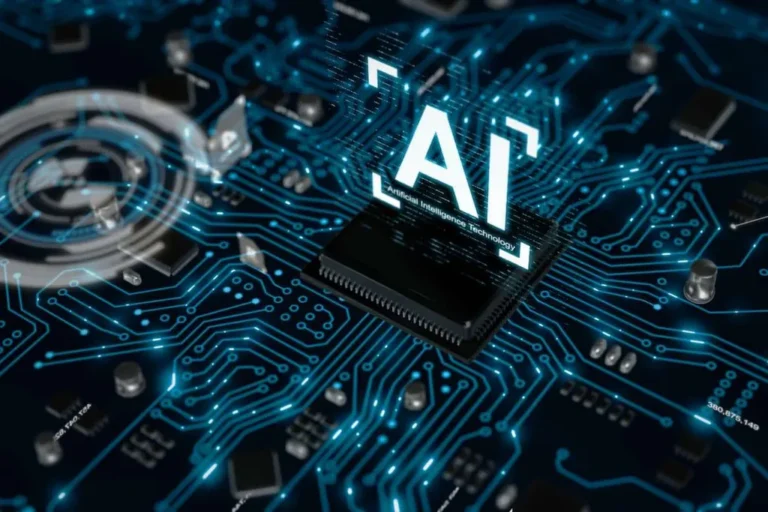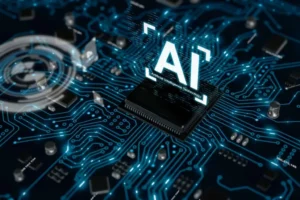AI in Data Engineering: A Complete Overview

Artificial Intelligence (AI) technology streamlined task automation, enabling ventures to foster innovation and achieve higher productivity. Investing in Gen AI tools lets firms provide 24/7 support, simplify operations, and scale up processes. Algorithmic systems permit teams to optimize routines, develop data pipelines, generate code, and perform debugging. Engineers discover new ways of ensuring information accessibility and using unstructured facts in retrieval augmented generation (RAG) workflows. In this guide, we will consider the main use cases of AI in data engineering as well as the key approaches used by ventures to solve common issues.
What is the Relationship Between AI and Data Engineering?
Organizations develop complex infrastructure to deploy AI algorithms. Data engineers ensure that AI systems will have access to structured data. It permits teams to integrate complex AI models, using validated information. These specialists gather and sort information to store it in data warehouses. Metadata management techniques allow AI models to generate outputs relevant to a specific context. Data engineering facilitates deploying advanced AI models and making the most out of algorithms.

We are confident that we have what it takes to help you get your platform from the idea throughout design and development phases, all the way to successful deployment in a production environment!
Benefits of AI in Data Engineering
GenAI allows ventures across many industries to boost efficiency. Businesses need to use high-quality datasets and build powerful pipelines to serve clients better and optimize their routines. Companies integrate automated machine learning (AutoML) platforms into their workflows. It enables them to deploy AI models and monitor their performance. LLMs use these platforms to automatically improve their functioning based on new insights and maintain high effectiveness over time.
Here are the main upsides of implementing artificial intelligence and data science engineering solutions:
- Improved decision-making. Generative AI analyzes extensive sets of facts to provide information and help managers make better choices. AI-powered predictive analytics tools in retail enable firms to forecast fluctuations in demand, optimize inventory, and enhance customer satisfaction. Algorithmic tools predict trend development and client behaviors, helping businesses adjust, make weighted strategic choices, and boost profits.
- Cost efficiency. Firms automate routines, allowing employees to focus on complex tasks. The approach permits ventures to reduce operational expenses. A chatbot answers queries and escalates challenging issues to human agents. AI enables firms to optimize supply management, simplify production workflows, and streamline other tasks. In manufacturing, AI systems create maintenance schedules. It lets ventures minimize downtime and avoid costly replacements.
- Augmented customer experience (CX). Personalization makes interactions engaging. AI bots analyze consumer preferences and buying behaviors to provide relevant recommendations and drive sales. Digital assistants answer queries 24/7, allowing clients to receive assistance quickly.
- Competitive advantage. GenAI expedites product deployments, enabling businesses to adapt to evolving conditions. AI enables developers to utilize code snippets to reduce time to market. Companies utilize AI to stand out among competitors. In healthcare, algorithm-driven diagnostic tools allow healthcare professionals to improve the quality of their services and serve more clients.
- Top-grade data security. AI models detect suspicious behavior patterns and protect a firm’s cybersecurity profile. Financial organizations deploy algorithms to monitor transactions, stop fraudsters from accessing user records, and ensure compliance.
Ventures recognize the advantages of AI and implement such products to save money, handle organized and unorganized information effectively, and enhance CX.
Common Challenges
AI helps businesses to optimize their processes and make data accessible. However, enterprises still face difficulties when making this technology an integral part of their workflows. Below, we have outlined the issues a machine learning data engineer should be aware of before trying to utilize AI to handle evidence:
- Privacy. SaaS platforms allow companies to save valuable resources and utilize algorithms without making significant investments in hardware. However, legal professionals voice concerns about security issues related to LLM usage. Businesses must encrypt their records and ensure that client information won’t be accessed by third parties.
- Infrastructure. Businesses need to invest in the right hardware and train their employees to implement AI into their workflows. It may involve spending a lot of money and hiring new staff.
- Quality. When collecting information and building datasets, one should pay attention to the quality of the records they use for training AI models. If it’s poorly organized or contains mistakes, ventures won’t benefit from using them to streamline their routines. Large Language Models (LLMs) should be trained on facts meeting the industry standards. Organizations need to understand in what areas AI will be useful. It allows engineers to automate repetitive tasks like code reviews and streamline data migration.
- Compliance. AI helps ventures to monitor processes automatically and send timely reports. Pharmaceutical businesses use it to ensure that their processes meet the current regulatory requirements. It permits them to avoid non-compliance fees.
Enterprises have to solve these issues to follow industry standards and use AI responsibly.

Best Practices
Businesses have discovered many applications of AI. The technology permits them to handle information efficiently and save time. Many people wonder: “How to use AI in data engineering?” Below, we have described the main ways to utilize algorithms to optimize operations.
Generating Code
Teams use AI to write code, review their products, and perform other tasks. Professionals utilize tools like GitHub Copilot to generate SQL. Algorithm-powered solutions let developers reduce the amount of manual work and use AI to expedite code creation and improvement.
Instead of reviewing code manually, analysts deploy AI to maintain consistency, ensure adherence to formatting requirements, check code for completeness, assess its performance, and solve other code optimization tasks.
Translating SQL Dialects
Engineers often have to work with several SQL variations. It slows down their workflows and makes it challenging to complete tasks on time. GenAI translates queries without delays, allowing enterprises to work in all sorts of environments.
Algorithms ensure the smooth integration of records from different sources. It facilitates using multiple databases that utilize different SQL dialects and avoiding mistakes associated with manual query translation. Large companies with teams using different database systems deploy AI to streamline cooperation between the departments and eliminate compatibility issues.
Improving Data Warehouse Effectiveness
When processes become more convoluted, businesses need to discover how to handle the information they collect to reduce their expenses. Data warehouse costs increase over time. Professionals need to streamline query performance and expedite data transformations. AI systems need to collect accurate info from multiple sources to foster business intelligence. They minimize the possibility of silos, ensure consistency, improve security, and allow firms to scale.
Accelerating Data Migrations
AI expedites migrations, allowing companies to perform them in a fully automated mode. LLMs facilitate translating code and validating it across multiple databases. Digital migration agents use AI to convert code to another SQL variation. They automatically verify records across old and new repositories to ensure consistency and accuracy. It diminishes migration-related risks and allows AI systems to fine-tune their performance.
Generating Documentation
Engineers need to create comprehensive documentation on datasets to ensure consistent quality and accessibility. AI products automatically describe records and generate utilization guidelines. It permits teams to spend less time on such tasks and simplifies collaboration. Digital assistants create detailed documents with query examples, the description of the most efficient practices, and information about permissions. Professionally written documentation enables organizations to use extensive repositories and update information about them regularly.
Tools for Deploying AI in Data Engineering
Companies utilize Tabnine, DeepCode AI, GitHub Copilot, Apache MXNet, TensorFlow, and other solutions to work with data. In the healthcare industry, professionals use AI to increase the accuracy of medical imaging and diagnostics. Algorithms improve the interpretations of MRI and CT, enabling specialists to detect possible issues. AI facilitates drug development and allows organizations to provide personalized services.
Banks deploy algorithms to detect fraud. They analyze transactions and flag suspicious operations in real time and use chatbots to analyze the conversation history and generate custom recommendations. Brokerage platforms integrate algorithmic trading solutions. It enables users to adopt complex strategies and use the power of automation to analyze extensive amounts of data.
In retail, AI facilitates inventory management and lets businesses increase the efficiency of their marketing efforts. Companies deploy algorithms to analyze client records and generate personalized product recommendations.
Manufacturing enterprises use AI to optimize supply chains. Algorithms empower them to predict demand and simplify operations. Media use AI to produce quality content and boost engagement. GenAI allows companies to grab the audience’s attention. In education, AI lets organizations develop custom learning strategies to improve the accessibility of their services. Bots automate routine tasks like grading and scheduling. Besides, they can be used as virtual tutors.
Final Thoughts
AI in data engineering lets ventures optimize manual workflows, foster innovation, and save resources. Companies must address the issues related to the implementation of AI to make their systems secure and protect client confidentiality. Powerful algorithms require quality datasets. Professionals should integrate mechanisms designed to collect and organize information. Automated solutions let teams focus on complex projects with a lasting impact. Organizations need to build robust pipelines to make the most of GenAI tools and achieve measurable outputs.
Top Articles
Container vs VM (Virtual Machines): How Do They Differ?
I am here to help you!
Explore the possibility to hire a dedicated R&D team that helps your company to scale product development.






